Food quality is incredibly important in weight loss, particularly when it comes to the first meal of the day.
Eating a breakfast that’s both wholesome and satisfying not only keeps you energized longer but also helps curb the sugar cravings that lead to weight gain.
In this post, we’ll explore 12 top breakfast foods for weight loss to aid your journey toward a healthier, happier you!
Breakfast Foods for Weight Loss
When considering the top breakfast foods for weight loss, try to look for these key elements:
High-protein content- Protein-rich foods help control hunger cravings while preventing overeating. This, in turn, will reduce the amount of overall calories consumed during the day. Protein also plays an instrumental part in building muscle mass which can speed up metabolism.
High fiber content- Foods abundant in fiber support weight loss through satiety, regulating blood sugar levels, and promoting a healthier digestive system.
Nutrient-dense- A healthy diet should provide the body with all of the necessary nutrients, including vitamins, minerals, and healthy fats. These nutrients help the body function better, boosting overall energy and well-being.
The elements mentioned above can serve as your guide to ensure that you’re crafting the healthiest meal possible to support your weight loss journey.
Almond Butter
High protein content
Healthy fats
Nutrient-dense
Almond butter is a decent source of protein that contains monounsaturated and polyunsaturated fats.
These fats help lower bad cholesterol while raising good cholesterol, aiding in better blood sugar control.
Almond butter is also an excellent source of vitamin E, iron, calcium, magnesium, potassium, and fiber.
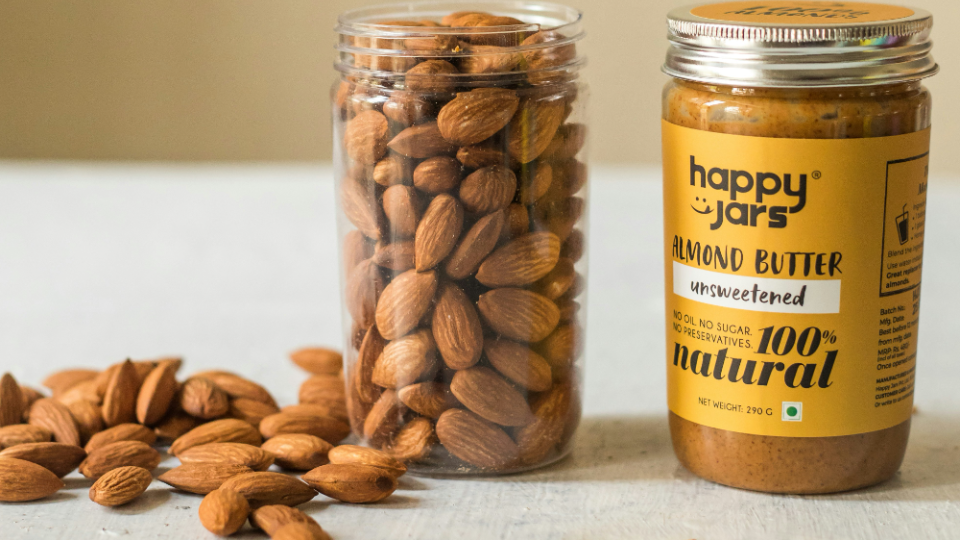
Berries (blueberries, strawberries, raspberries)
Low-calorie
High fiber content
High water content
Antioxidants
Berries are a diet-friendly choice because they are so low in calories.
They’re also loaded with fiber and rich in antioxidants, substances that support your body’s natural defense against harmful molecules.
Moreover, they can combat oxidative stress, reduce inflammation, and decrease the risk of heart disease as well as other health problems.
Also, since berries have a high water content, they can help keep you hydrated and feeling full.

Cottage cheese
High protein content
Low-calorie
Healthy fats
Probiotics
Cottage cheese is packed with protein and healthy fats, which can help support heart health and well-being.
As a lower-calorie food, this curd cheese makes an ideal choice for those watching their calorie intake.
Some cottage cheeses may contain probiotics (check the label), which can help promote a healthy gut and support the immune system.

Eggs
High protein content
Nutrient-dense
Low-calorie
Eggs are a source of high-quality protein.
The consumption of eggs in particular has been shown to increase the feeling of fullness and reduce overall food intake later on in the day.
This can minimize the likelihood of overeating and snacking between meals. Eggs are jam-packed with vitamins, minerals, and antioxidants.
They’re particularly rich in choline, selenium, and riboflavin, as well as other vitamins like A, E, and D which can support your body’s optimal function.
Lastly, one large egg can contain around 70 to 80 calories making it a smart dietary choice to maintain a caloric deficit. A factor crucial for weight loss.

Flaxseeds
High protein content
High fiber content
Healthy fats
Nutrient-dense
Flaxseeds are a good source of quality protein.
They’re rich in soluble fiber, which may promote weight loss by reducing hunger and cravings.
Flaxseeds are one of the best plant-based sources of omega-3 fatty acids, a factor that especially supports heart health.
These seeds are a good source of essential vitamins and minerals, such as vitamins B, E, and K, as well as magnesium and zinc.
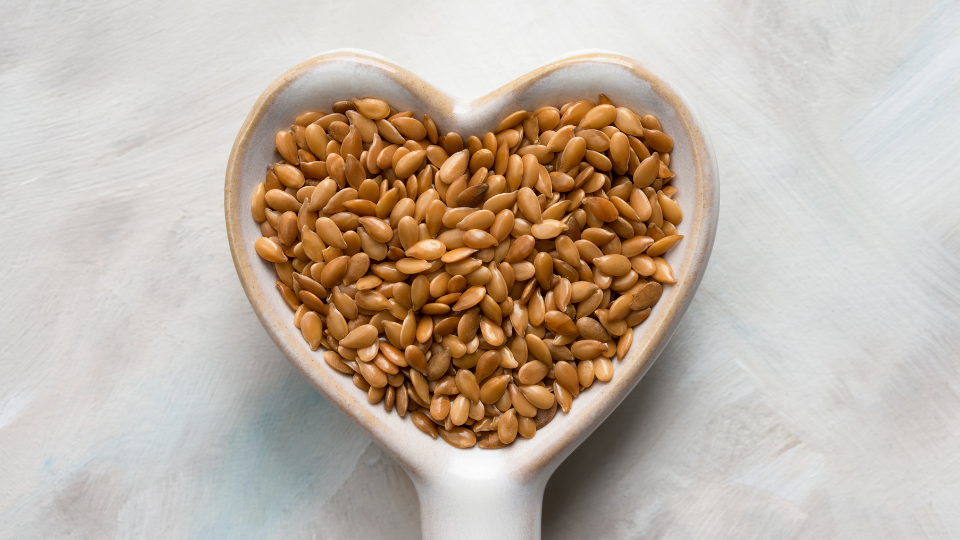
Grapefruit
Low-calorie
High fiber content
Nutrient-dense:
Antioxidants
Grapefruit is lower in calories, a perfect food for anyone watching their calorie intake.
This fruit is rich in fiber, essential vitamins, and minerals, such as vitamins C, A, and potassium, which support your optimal health.
Grapefruit contains powerful antioxidants, such as beta-carotene and lycopene. This may aid in protecting cells from damage and reduce the risk of chronic conditions.
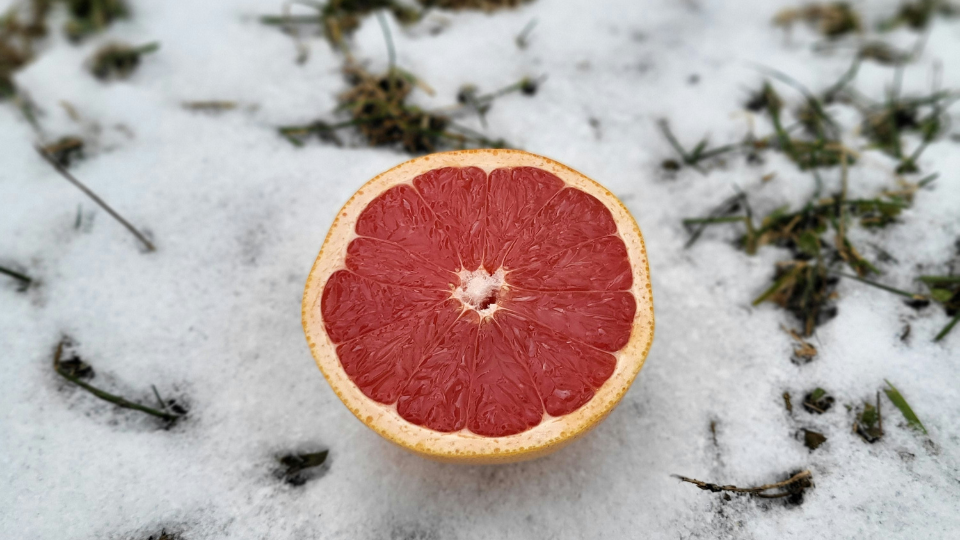
Greek yogurt
High protein content
Low in fat, carbs, and calories
Probiotics
Greek yogurt has about 3 times more protein than regular yogurt.
Of course, this promotes appetite control and satiety as well as improves energy levels.
Additionally, this yogurt is low in fat, carbs, and calories, making it a nutritious and satisfying option for weight loss.
Greek yogurt is a probiotic, meaning it is typically produced from live bacterial cultures that help support the good bacteria in your digestive system.
Probiotics may improve your digestive system’s ability to handle a wide variety of foods and help regulate bowel movement.
Greek yogurt is an excellent source of calcium, a mineral your body uses to support bone health.

Oatmeal
Moderate Protein
High fiber content
Low glycemic index
Oats contain a moderate amount of protein but it can still help curb appetite and support muscle growth.
A great source of fiber, oats have a low glycemic index (GI), meaning they release energy slowly and help maintain stable blood sugar levels.
This can minimize sugar cravings and prevent overeating later in the day.

Quinoa
High protein content
High fiber content
Healthy fats
Low glycemic index
Quinoa is a complete protein, containing all nine essential amino acids that the body cannot make on its own.
It’s rich in insoluble fiber, which in addition to satiety, curbs your appetite while encouraging insulin sensitivity. It also promotes bowel health and regularity.
Quinoa contains good fats, which can help support heart health and overall well-being.
Lastly, this grain is low in the glycemic index, so it helps keep sugar levels stable and further aids in weight loss.
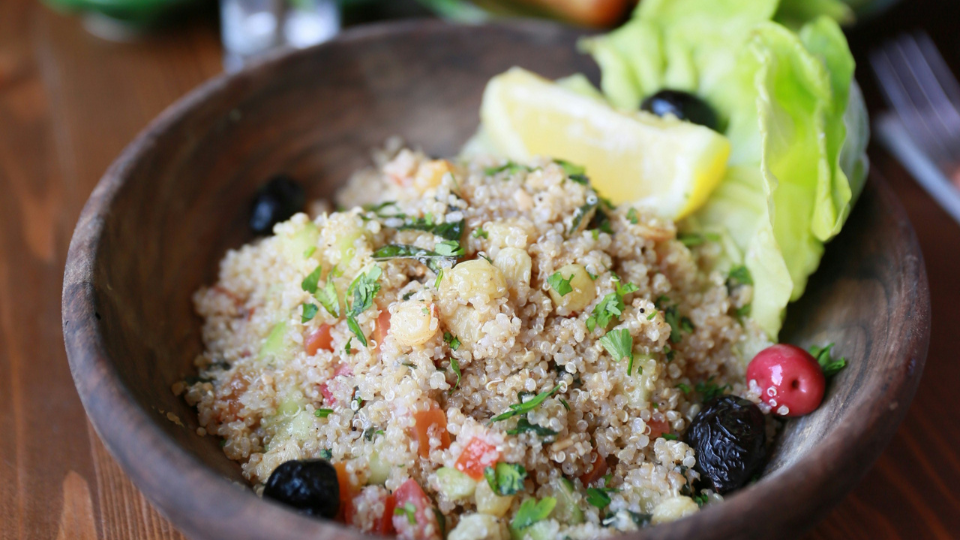
Spinach
High fiber content
Low-calorie
High water content
Nutrient-dense
Spinach is rich in insoluble fiber, so it sustains you for longer while aiding in digestion and the absorption of nutrients.
It has a high water content, helping to keep you hydrated and supporting overall well-being.
Also, low in calories, spinach is packed with essential vitamins and minerals, such as vitamins C, K1, folic acids, calcium, and iron, which support overall health.

Whole-grain Toast
High fiber content
Nutrient-dense
Blood sugar control
Low glycemic index
Whole grains contain all three parts of the seed (bran, endosperm, and germ).
These components provide essential nutrients such as fiber, protein, folate, B vitamins, and healthy fats.
Refined grains only contain the endosperm, which is mostly starch. Whole grain toast contains more fiber than refined grain toast.
This toast additionally has a lower glycemic index than refined grain toast. This helps maintain your stable blood sugar levels and prevents energy crashes.

Whole-grain Cereal
High fiber content
High protein content
Nutrient-dense
Low-calorie
Whole-grain cereals are loaded with fiber and protein.
They are a good source of essential vitamins and minerals, such as vitamins B, E, and K, as well as magnesium and zinc.
Whole grain cereals are generally low in calories, making them an ideal choice for those watching their calorie intake.
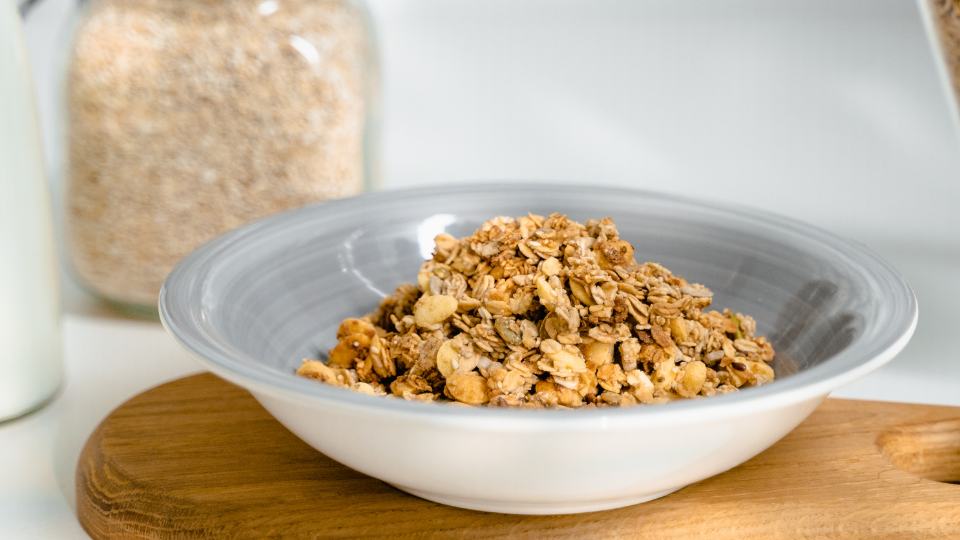
Make Your Own Top Foods for Weight Loss List
That was the top 12 breakfast foods for weight loss, but perhaps you’d like to add to it or even make your own.
There are plenty of delicious options just waiting to be included in your diet.
Just follow the guidelines above and you’ll be well on your way to creating a healthy, satisfying meal plan that’s just right for your journey.
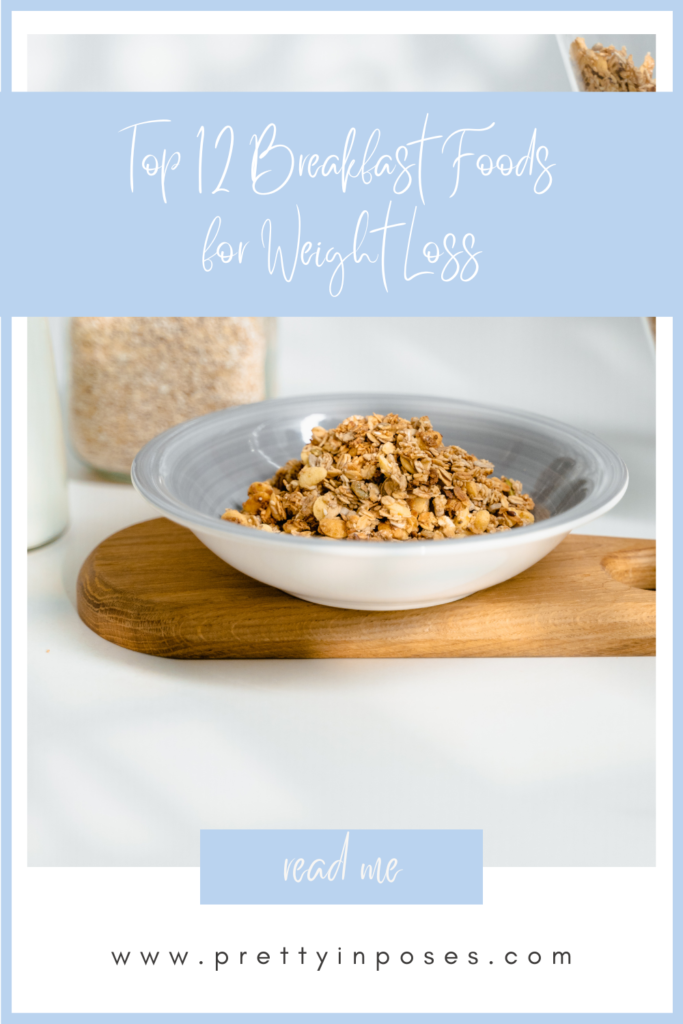






Leave a Reply